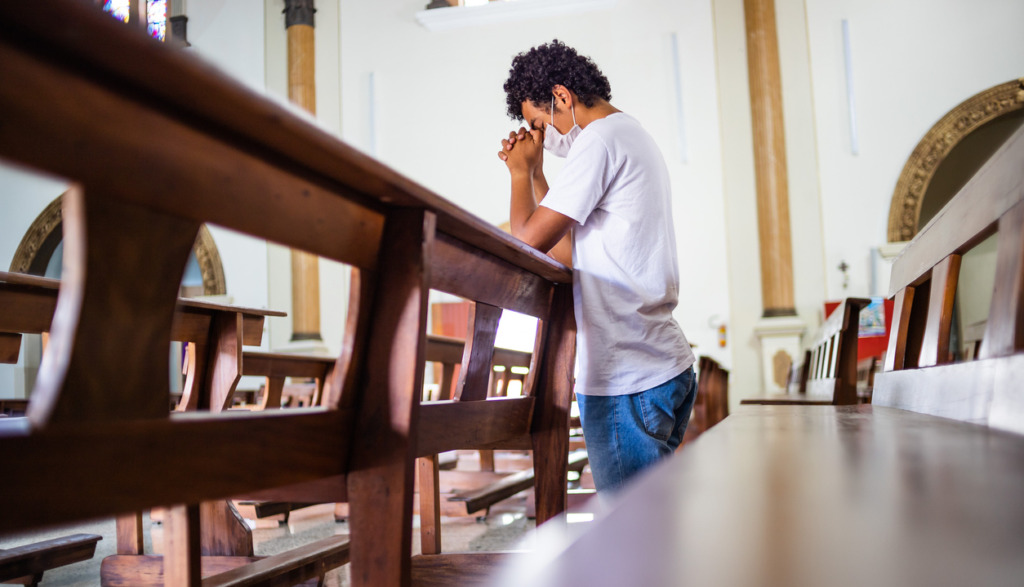Question:
Can you please tell me the purpose of prayer? I understand prayers of thanksgiving and prayers of adoration, but I don’t understand prayers of petition. I was always taught that God doesn’t change.
So what good does it do to pray that a family member returns to the Church or that a friend survives cancer, if God already knows what’s going to happen and isn’t going to change his mind? (Virginia)
Answer:
Throughout the Scriptures, it is clear that we are invited to pray if we need something. One striking example comes in the Letter of James (5:14-15), where we are told:
“Is anyone among you sick? He should summon the presbyters of the Church, and they should pray over him and anoint (him) with oil in the name of the Lord, and the prayer of faith will save the sick person, and the Lord will raise him up.”
Another such reference is found in Mark’s Gospel (9:29). Jesus had expelled an unclean spirit from a boy, and when his disciples asked him why they themselves had not been able to do this, he answered, “This kind can only come out through prayer.”
And in Matthew’s Gospel (21:22), Jesus assures us that “whatever you ask for in prayer with faith, you will receive.” But your question still remains, “If God knows ahead of time what he’s going to do, what’s the point in our praying for it?”
The answer is that the effect of petitionary prayer is not opposed to God’s unchangeable providence but included within it. That is to say, our prayers do not alter the divine plan but are factored into that plan itself.
God, in his wisdom, has made some things we desire contingent on our praying for them. He does this so that we may regularly turn our hearts to him and recognize our dependence. I should admit that the relationship between God’s plan and our prayers is veiled in some mystery, and we will not understand fully until we have met the Lord.
Question:
Among my dying husband’s wishes was the desire to save land for the living and therefore to be cremated and interred at Willamette National Military Cemetery near Portland, Oregon.
I, too, shall be cremated and interred at Willamette National, sharing my husband’s niche. I would like my ashes to be mingled with his. Does that violate Catholic teaching? (Estacada, Oregon)
Answer:
Catholic practice does not include commingling the ashes of spouses. This is based on the Church’s belief that the body of a person is God’s temple and therefore deserves individual honor and preservation.
However, here might be a solution: Catholic cemeteries customarily offer companion urns, with two separate chambers, so that the ashes of a married couple can be buried side-by-side in the same vessel.
And it strikes me that these receptacles would eventually disintegrate, leaving what you desire — that, over time, the ashes would be mixed.
Question:
I have a question regarding dating people who are divorced (Catholic or non-Catholic). At my age (42) it seems like the majority of those in the dating pool are, in fact, divorced. Many of these potential dates are through online dating apps, which don’t list the person’s whole history.
Then there is the issue of knowing whether the person’s marriage was even valid to begin with. These are questions that, I feel, need to be asked over the course of several dates. So my question is this: Is it OK for a Catholic to date someone who is divorced? (Bel Air, Maryland)
Answer:
Certainly before entering any kind of serious romantic relationship, a Catholic should know whether the person he or she is dating is free to marry in the Catholic Church. (And it is good to consider how quickly — especially at the age of 42 — a dating relationship can become serious.)
In terms of knowing whether someone’s previous marriage was valid in the Church’s eyes, it is safest to presume that it was. Certainly two non-Catholics have no responsibility to get the Catholic Church’s approval before marrying, and the assumption is that the couple was in good faith and that their decision must be honored.
I can understand — especially with the advent of online matches — that you wouldn’t want to “grill” a potential date at the very outset on the circumstances of their first marriage; but fairly early in the relationship, you would want to know that, should you decide to marry, the two of you would be free to marry in the Church.
Should your dating partner need a Church annulment from a previous marriage, you should know that that process could take several months, even a year. The questionnaires are extensive and seek to examine whether there was some reason — psychological or emotional — that may have hampered the first couple from entering into a permanent relationship.

